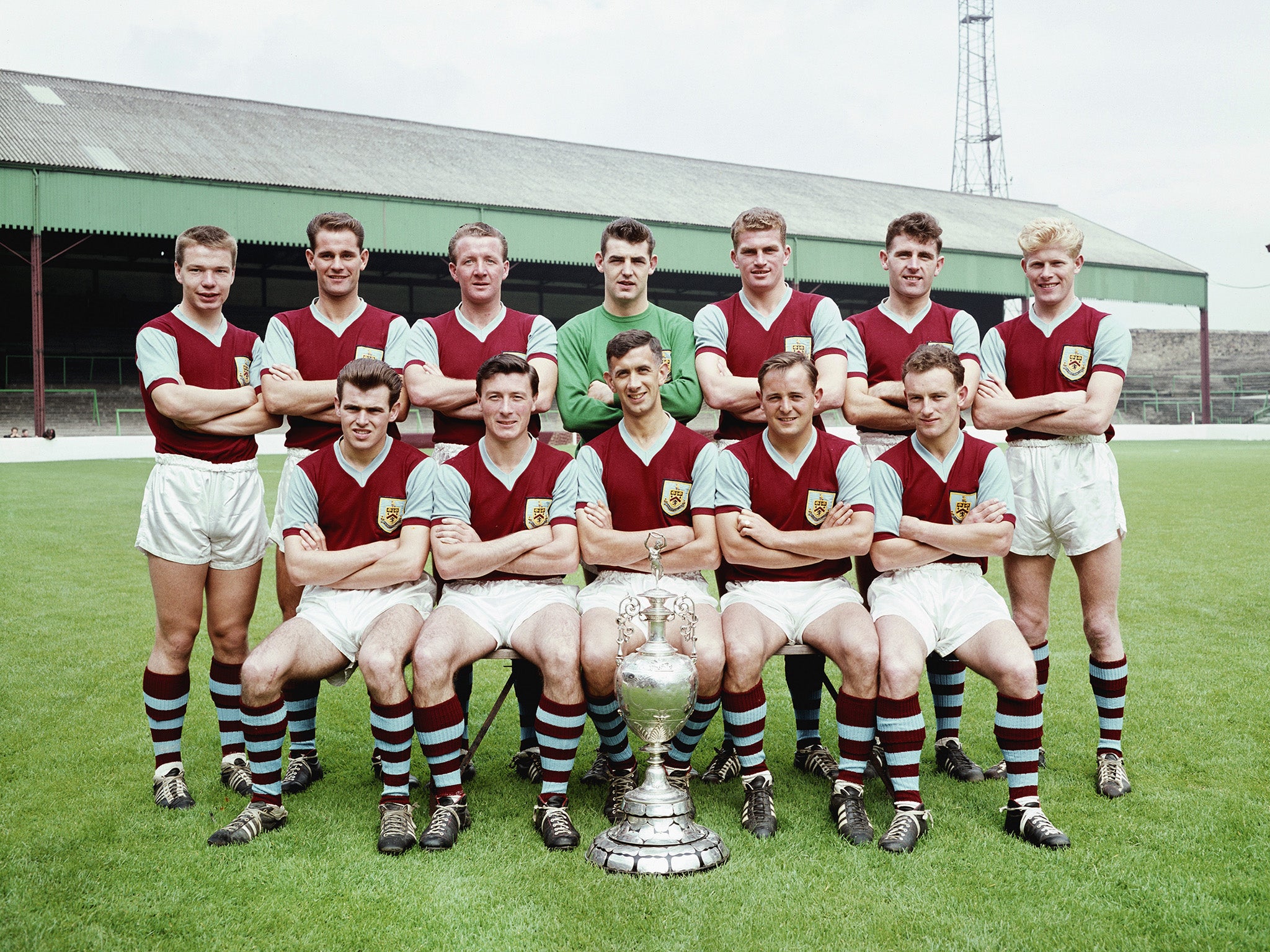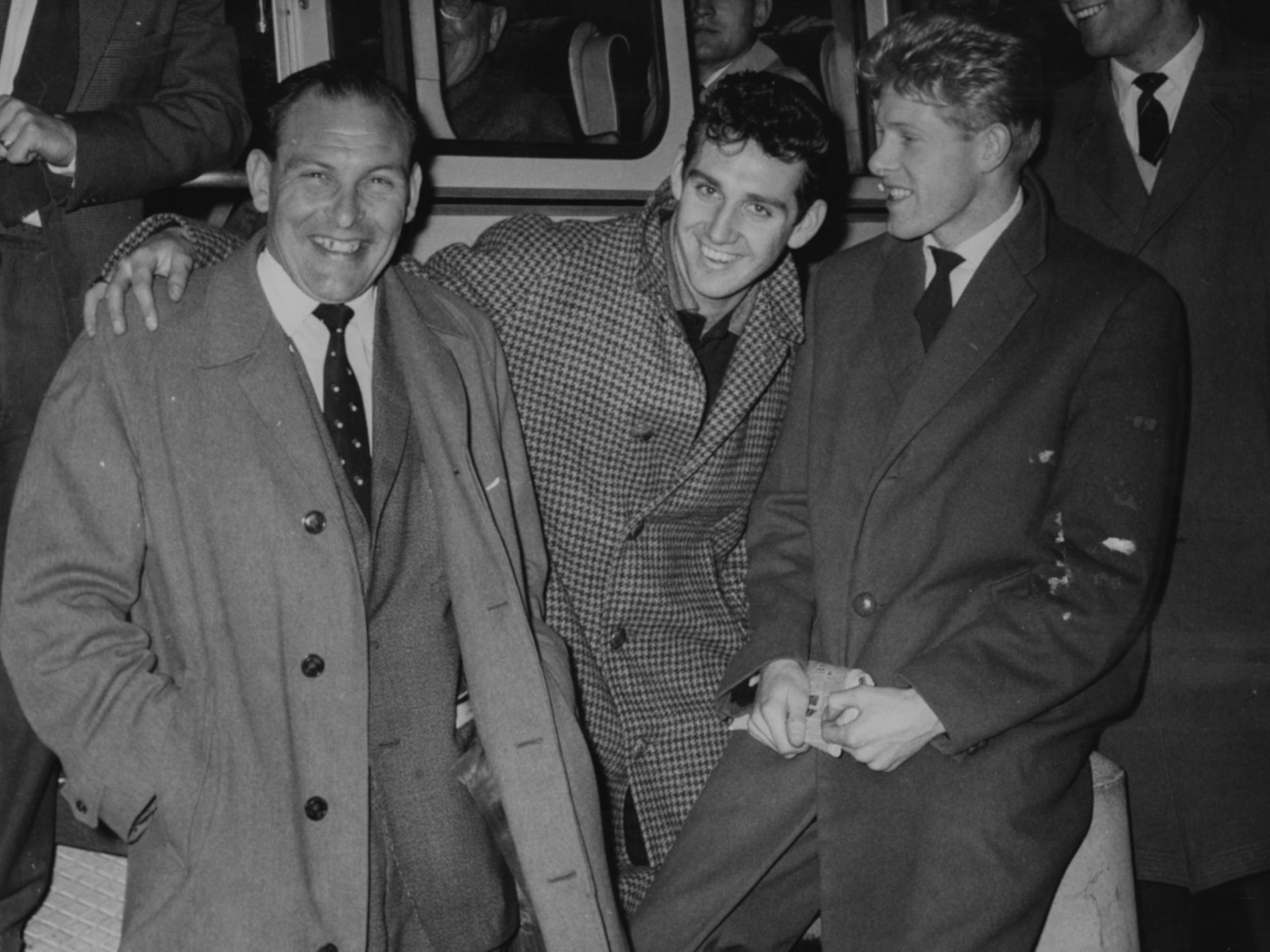Burnley's return to Europe comes with echoes from the past
Sean Dyche's methods are similar in some ways to those of Harry Potts, the last man to lead Burnley into European competition

It has been some time in the making, and no passports are required for now at least, but Burnley are back in Europe. On Thursday night, Sean Dyche’s side – the pesky upstarts of last year’s Premier League season – will walk out against Aberdeen at Pittodrie in the Europa League’s second qualifying round, and one of English football’s most historic clubs will return to a level it has not graced in more than half a century.
Burnley’s last appearance in European competition came in the 1966-67 Inter-Cities Fairs Cup but by that point, like many of Lancashire’s provincial clubs, the Clarets were on the cusp of a decline. The following years would see them initially stagnate in mid-table, then lose their top-flight status and eventually fall into a footballing hinterland, dropping as far as the Fourth Division.
No such slump could have been predicted seven years earlier, in the months before their first adventure on the continent. Burnley spent just one day at the top of the First Division table during the 1959-60 season but it was the day that counted, with the title clinched at Maine Road in the final game of the campaign. A talented squad – inspired by playmaker Jimmy McIlroy, enlivened by the wing play of Brian Pilkington, powered by the goals of John Connelly – was all overseen by a manager who hailed from the same North East coal-mining village as Bob Paisley – the oft-forgotten Harry Potts.
Potts was a tactical innovator. Among the first English advocates of the 4-4-2, he is ambitiously hailed by some as a pioneer of Total Football too. While that point is debatable, Potts’s methods were most definitely based around sharp passing, swift movement and the interchanging of positions. “We didn’t believe in sticking to numbers on our backs,” his captain Jimmy Adamson later said. “If the full-back suddenly found himself in the momentary role of a winger, then he got on with it, and someone took his job in the rear… ‘Off the cuff’ fluid football [was] the aim.”
This progressive outlook was matched in the boardroom by Bob Lord – Burnley’s pugnacious and combative chairman, who nonetheless invested wisely in his hometown club’s facilities and youth programme rather than spending heavily on transfer fees. Potts and Lord’s shared foresight and careful stewardship was ultimately what brought the title to a mill town of slightly more than 80,000 people. With it came European football.
Burnley, threatening to reach the peak of their talents, began their 1960-61 European Cup campaign against Just Fontaine, Raymond Kopa and their Stade de Reims team-mates, two-time finalists in the competition’s five-year history. Despite their unfancied status, Burnley claimed a 2-0 first leg victory at Turf Moor and the tie should have been settled when Jimmy Robson opened the scoring during the return at the Parc des Princes. Instead, Robson’s goal only lit a fire under Reims, who incensed Potts by trying every trick to edge their way back into the tie.
“There were antics with the French players, who were basically trying to gain advantage,” says Shaun Borman, Burnley’s club historian. “Harry Potts walked onto the pitch, picked the ball up and threw it around 15 or 20 yards back down towards the Reims goal. French officials dragged him off, then the supporters in the stadium started letting flares and rockets off, throwing basically anything at the Burnley officials sat on the bench.” Potts was fined £105 by the Football Association for his conduct. “I don’t think Harry was bothered,” Borman adds, of a man who would invite further punishment in the quarter-finals.

The second leg of Burnley’s tie with Hamburg was book-ended by a First Division fixture with relegation-threatened Chelsea and an FA Cup semi-final against Tottenham Hotspur – three games in the space of eight days. Potts gambled, naming a heavily weakened side in the league. “People talk about the likes of the top five or six Premier League clubs leaving all their best players out but Burnley probably the first team to ever really do it,” Borman notes. “[Burnley’s goalkeeper] Adam Blacklaw was still in the team, the rest were changed.”
It was a wager that did not pay off, though. Not only was Potts fined £1,000 by the FA but Hamburg claimed the semi-final place, overturning Burnley’s 3-1 first leg lead. Burnley were beaten in the FA Cup semi-final as well, and a season that began with much promise ultimately underwhelmed. Runners-up finishes in the First Division and FA Cup followed a year later, but their peak under Potts had already passed.
Even so, at a time when English football’s provinces began to wane and the major city clubs moved to the fore, Burnley’s triumphs in the early 1960s should be remembered as an example of sustained, small town success. Finishes of first, fourth, second and third between 1960 and 1964 would be unrealistic for a club of Burnley’s size a decade later, let alone in the modern era. One man was more responsible for that success than most.
“Potts was a manager who could motivate average players,” says Borman. “He was instrumental in bringing a lot of local players from local teams – the surrounding areas in Lancashire – and Northern Ireland too.” Of the title-winning side, only the Northern Irish pair of McIlroy [£8,000] and Alex Elder [£5,000] commanded a transfer fee. Others were picked up from boys’ clubs or, in Pilkington’s case, the likes of Leyland Motors. “We had a few average players,” Borman admits, “but [Potts] had them working well as a team.”
Sound familiar? Though practitioners of different styles – and perhaps different touchline manners – the similarities between Potts and Dyche are clear. Both have employed tactics that cause them to stand apart from their contemporaries. Both have sought to improve on inexpensive, locally-sourced talent. Both have punched above their weight against better-funded big city opponents. And, come kick-off at Pittodrie on Thursday night, both will have led Burnley in European competition.
Join our commenting forum
Join thought-provoking conversations, follow other Independent readers and see their replies
Comments
Bookmark popover
Removed from bookmarks